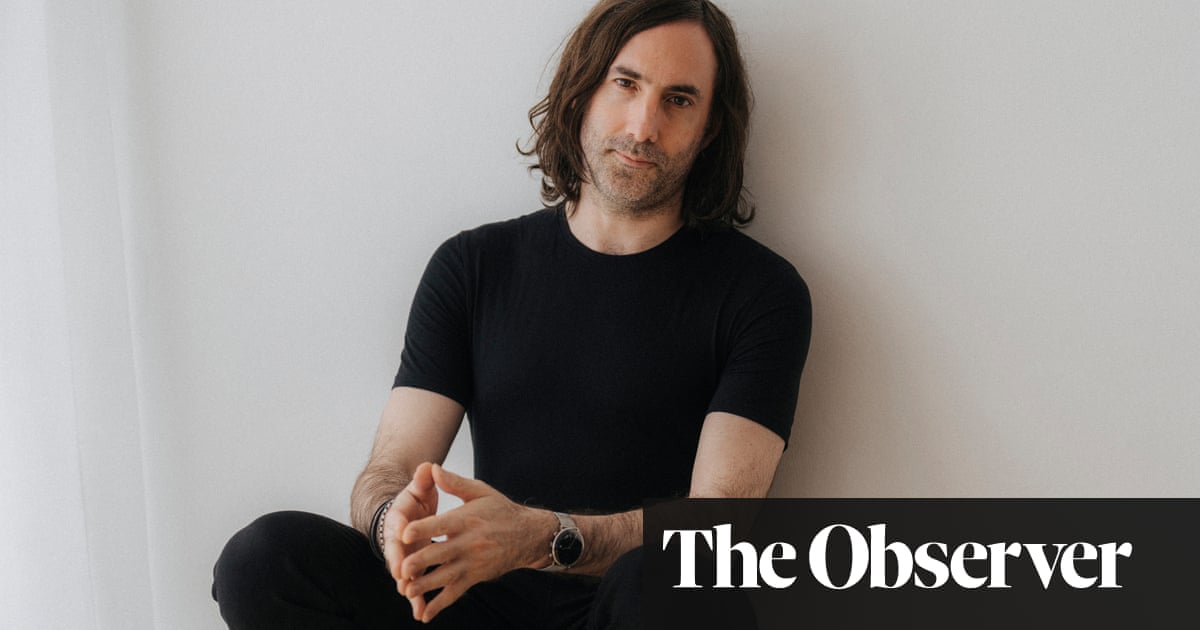
atching the numbers tick up on Brandon Sanderson’s Kickstarter is a remarkable way to pass the time. The fantasy author initially set out to raise $250,000 (£198,500) to release a 10th anniversary, leather-bound edition of his doorstopper novel, The Way of Kings. In less than 10 minutes, it became the most-funded publishing project of all time when it topped $1m. With 15 days still to go, he’s raised more than $5.6m. All this for a book that was just one of 13 Sanderson wrote before he’d even landed a publishing deal.
Most writers have novels that never see the light of day. But 13? That’s serious dedication. The books were written over a decade while Sanderson was working as a night clerk at a hotel – a job chosen specifically because as long as he stayed awake, his bosses didn’t mind if he wrote between midnight and 5am. But publishers kept telling him that his epic fantasies were too long, that he should try being darker or “more like George RR Martin” (it was the late 90s, and A Song of Ice and Fire was topping bestseller charts). His attempts to write grittier books were terrible, he says, so he became “kind of depressed”.
“No one wanted to read what I wanted to write. But when I tried to write what they wanted to read, I got even worse. I was like, what am I doing?” he says now, from his home in Utah. “It was stressful. A part of you has to wonder, after you’ve written a dozen novels and they’re all getting rejected, maybe this isn’t right for you? Maybe that’s what people are trying to tell you, but you’re not understanding. Everyone collects rejection letters, but not everyone is so stubborn as to keep doing it after that many.”
Sanderson had been a fantasy obsessive since the age of 14, when a copy of Dragonsbane by Barbara Hambly turned the reluctant reader into a lifetime fan. He became a biochemistry major at Brigham Young University, but after serving as a missionary for the Church of Jesus Christ of Latter-day Saints in Seoul for two years, he swapped to studying English on his return, and began volunteering for the university’s SFF magazine the Leading Edge.
After so many rejections and some soul-searching, he decided to keep at it. If he died with 100 unpublished novels in his closet, he would be “a bigger success than if I give up now because I’m discouraged”. In 2002, he finished writing The Way of Kings. In 2003, a publisher, Tor, finally showed interest in one of his novels: Elantris, an epic fantasy set in a former city of the gods, now devoid of magic.
Tor was also interested in The Way of Kings, but Sanderson, in an unusual move, decided “something wasn’t quite right” and pulled it. “I’d always wanted The Way of Kings to be my calling card to the fantasy genre. Fantasy is wonderful to me in that it can take you to a fantastical new place, show you lots of amazing things, but also can talk about what’s going on in our lives right now,” he says. “People say science fiction looks to the future, fantasy looks at the past. But the truth is both of them look at the now, just through different metaphorical lenses. I just didn’t have that balance down with Kings yet. It took me another six years after that until I was able to sit down and start the book over from scratch. I threw away everything, and started on page one again.”
His career began to take off in 2006 with the Mistborn trilogy, a heist story that twists classic fantasy tropes on their head: it is set 1,000 years after a prophesied hero went on an epic quest to defeat a big bad – only to be killed (possibly). Great reviews and sales led Harriet McDougal, the widow and editor of Wheel of Time author Robert Jordan, to pick up Sanderson’s books. She decided he was the right author to finish Jordan’s epic work. Working from notes left by Jordan, Sanderson completed the tale of Rand al’Thor’s battle with the Dark One over three books – and finally published The Way of Kings in 2010.
“People say, wow, you’re productive, and I’m not really. I’m very consistent,” he says. “But the big advantage I have is that I wrote so much before I sold. After Elantris, I just hit the ground running.”
Running to more than 400,000 words, The Way of Kings is truly epic fantasy. The first of 10 planned books in the The Stormlight Archive series, it is set on Roshar, a world plagued by deadly storms, and follows a wide cast of characters, including major protagonist Kaladin, a surgeon-turned-soldier-turned-slave. In his original version, the Kaladin character was a young would-be knight; it wasn’t a bad story, says Sanderson, but “one that’s been told a lot”. On his second attempt, Kaladin became a surgeon who is sent to war, betrayed after a victory and forced into slavery. “It’s just not the standard story– it became a richer, more interesting story for me to tell,” he says. And it was popular – the sequel, Words of Radiance, landed Sanderson his first No 1 on the New York Times bestseller charts.
Many of Sanderson’s novels are set within “the Cosmere”, his fictional universe. For a long time he hid this connection between his books, having been told that standalones were the way to go. These days, the details of the Cosmere – such as Adonalsium, the god figure who was killed by humankind and split into 16 pieces, and Hoid, a mysteriously recurring character – are endlessly picked over online by his vast army of fans.
Sanderson loves this. “I want people who pick up my books to not have to worry about all this interconnectedness. If they pick up The Way of Kings, I want them to be able to enjoy and connect with Kaladin and Shallan. But like a fractal, I want it to be that the deeper you look, the more there is that makes sense, that connects all these things together. I want it to be there for those who dig at it.”
He welcomes fan feedback, “because you do want to listen, and to find out where your weaknesses are, and try to shore those up, and you want to see what people are loving, and make sure that you’re doing that well in future books”. But there are limits. “You also can’t write a book by committee,” he says – something he was trying to do when he was struggling to find a publisher and “trying to please everybody”.
“Where it gets off is when people write you long emails again and again, about how you’ve done something wrong, how you need to listen to them and do their vision for the character. That’s not a healthy relationship for author or fan. I try to not to engage too much,” he says. “The best we can do is say, ‘I understand you have your vision for the character, and maybe it’s time to sit down and write your own stories.’”
As a member of the Mormon church, Sanderson is fascinated by religion. He hates that, when a religious character arrives in most books, they “inevitably turn out to be the bad guy, or stupid and needing to be taught a lesson … I swore to myself, when I became a published writer, that I was not going to do that to people. I try very hard to have characters who see the world differently from myself.”
In The Stormlight Archive, he creates atheists, agnostics, and reformed believers. (“I love seeing through all these different eyes.”) He falls on JRR Tolkien’s side in the debate between the Lord of the Rings author and CS Lewis over whether stories should be allegory, or just stories. “I think I’m doing a justice to human thought and to religion, when I explore it from all sides. That’s how I understand the world better. The main thing my religion does is it makes me make sure that I’m trying to treat people’s perspectives with respect,” he says.
“I think we arrive at truth through conversation. Not necessarily through the arguments that happen on the internet these days, but through conversation, through learning, through seeing through the other person’s eyes.”
Brandon Sanderson’s The Way of Kings 10th anniversary Kickstarter project runs until 7 August. His next novel, Rhythm of War, is published in November (Gollancz).












